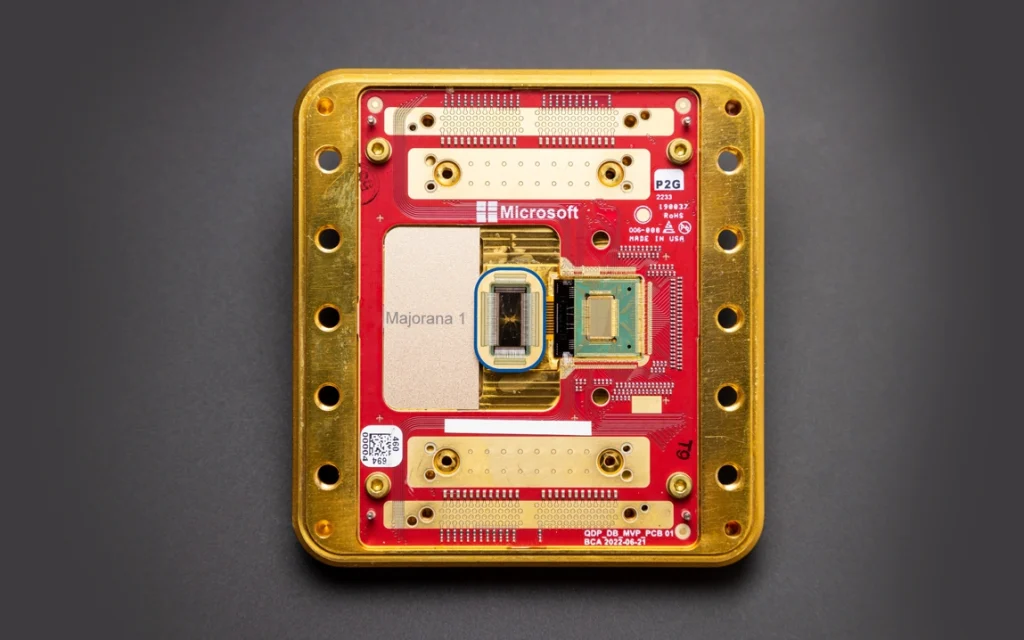Microsoft released the Majorana 1 chip that uses topological superconductors to unlock scalable quantum computing, which can solve difficult problems in years.
In a major breakthrough in quantum computing, Microsoft recently unveiled the Majorana 1 chip, the first topological core architecture quantum processor. This milestone achievement will bring useful quantum computers to address complex industrial and societal problems on the timescale of years instead of decades.
The Majorana 1 chip utilizes a new type of material called topological superconductors, or “topoconductors,” which supports the existence and survival of the Majorana zero modes. The strange quantum states are the building blocks of the topological qubits, which are more stable and less vulnerable to environmental noise than traditional qubits. The innovation puts Microsoft at the lead in the pursuit of scalable and stable quantum computers.
“After almost two decades of exploration, we’ve developed a completely new form of matter, which makes possible a foundational advance in computing,” Microsoft CEO Satya Nadella said. “This discovery lets us imagine a quantum computer that can solve real-world issues within a timeframe that previously was considered unimaginable.”
Quantum computing has long been promised to transform areas like cryptography, materials science, and drug discovery by executing computations that are beyond the capabilities of classical computers. But qubit stability and error rate constraints have held back progress. Microsoft’s strategy, using topological qubits, seeks to circumvent these issues with a more stable and scalable method.
The design of the Majorana 1 chip creates the straightforward route to scaling up quantum systems to a million qubits on a single palm-top chip, which is required for solving complex problems such as disassembling environmental toxins or designing new materials with unimaginable qualities. Although the chip at present has fewer qubits than certain rival designs, its design can be more efficient and less prone to errors, which might allow fewer qubits to be sufficient for practical purposes.
Even though the hype about this advancement is present, restraint is advocated by experts. University of Surrey physicist Paul Stevenson added, “The new papers are a good step, but like much thrilling work in quantum computing, the next steps are difficult, and until they’ve been taken, it’s too early to be anything more than cautiously optimistic.”
Microsoft’s press release has also had an effect on the finance market, and stocks in quantum computing have varied as a consequence. When Majorana 1 was released, IonQ and Rigetti Computing shares both dramatically increased in value, reflecting greater investor demand for the industry. Market experts caution that, even though technological advancements are comforting, getting there is a convoluted journey and requires more proof.
Overall, the development of the Majorana 1 chip is a quantum computing leap. By employing topological superconductors to create robust and scalable qubits, Microsoft is poised to create quantum computers capable of resolving some of humanity’s most serious problems. Research and development will play a dominant role in understanding the real-world implications of the technology on businesses and sciences over the next several years.
